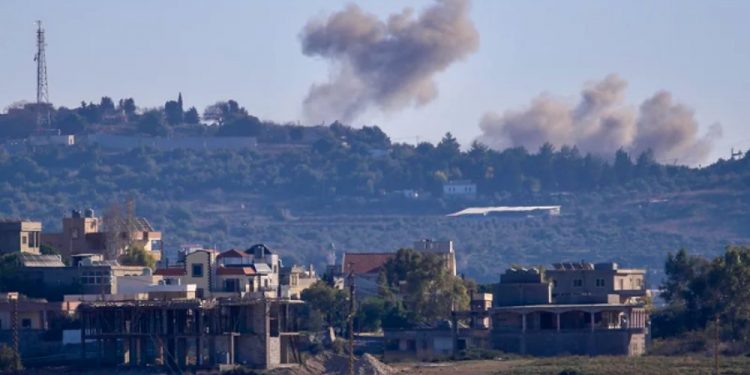In a significant escalation of tensions, Hezbollah, the Lebanese militant group, launched a barrage of over 60 rockets at an Israeli military base. This attack, reported as a response to the killing of a Hamas leader in Beirut, has intensified the already strained relations between Israel and Lebanon.
Background and Motivations:
- Hezbollah, a Shiite group backed by Iran, has been a longstanding adversary of Israel, engaging in various acts of terrorism and military actions against the nation since its formation in the early 1980s. This group is designated as a terrorist organization by several countries, including the United States and Israel.
- The recent attack was a “preliminary response” to the assassination of Saleh Arouri, the deputy political leader of Hamas, in Beirut. Hezbollah leader Sayyed Hassan Nasrallah had indicated the need for retaliation following this incident.
Israeli Response and Preparedness:
- The Israeli Defense Forces (IDF) have been on high alert due to intelligence reports predicting an imminent attack from Hezbollah. Following the rocket attack, Israel has launched counter-strikes on Hezbollah targets in southern Lebanon.
- Israeli Prime Minister Naftali Bennett has strongly condemned the attack, stating, “We will not tolerate any aggression against our people. Hezbollah will pay a heavy price for their actions”.
International Reactions:
- The United Nations Secretary-General, Antonio Guterres, urged both sides to exercise restraint and de-escalate the situation. Additionally, the European Union condemned the attack, expressing solidarity with Israel.
Impact on Civilians and Regional Stability:
- The rocket attack has instilled fear among the residents of northern Israel, with many seeking shelter in bomb shelters and safe rooms. Others have evacuated the area entirely. The Israeli government has reassured its citizens of taking necessary measures for their safety.
- The situation remains fluid, with concerns about further violence and escalation. The international community is closely monitoring developments, hoping for a peaceful resolution to the conflict.
Analysis: This recent attack by Hezbollah not only represents a direct response to specific events but also underscores the ongoing volatility in the region. The Israeli reaction, both in terms of military response and political rhetoric, indicates a readiness to counter any perceived threats to its security robustly. The international community’s call for restraint reflects the broader concern over the potential for this conflict to widen and the dire consequences it could have for regional stability.



























